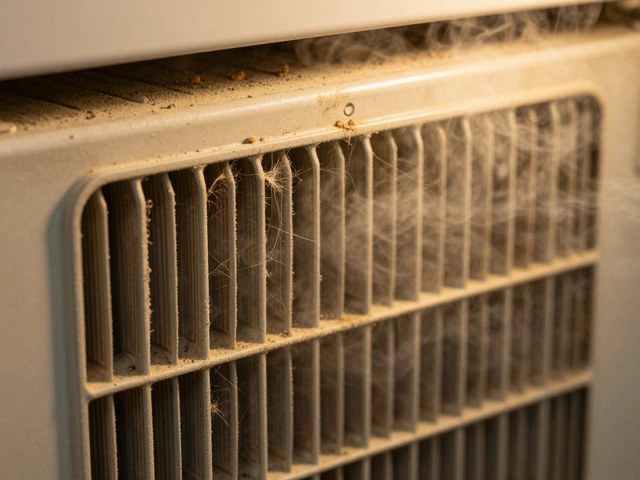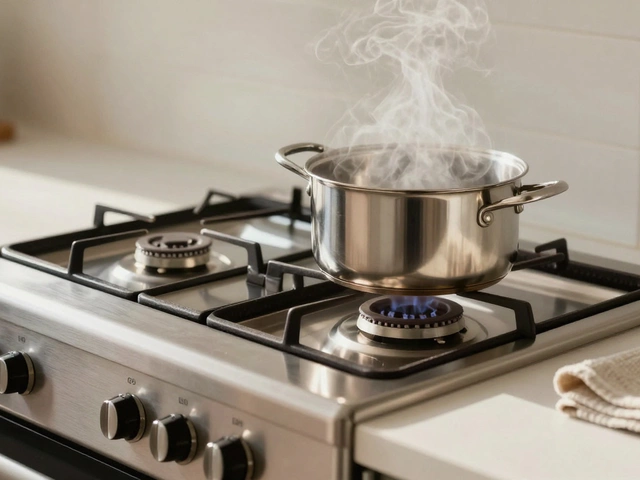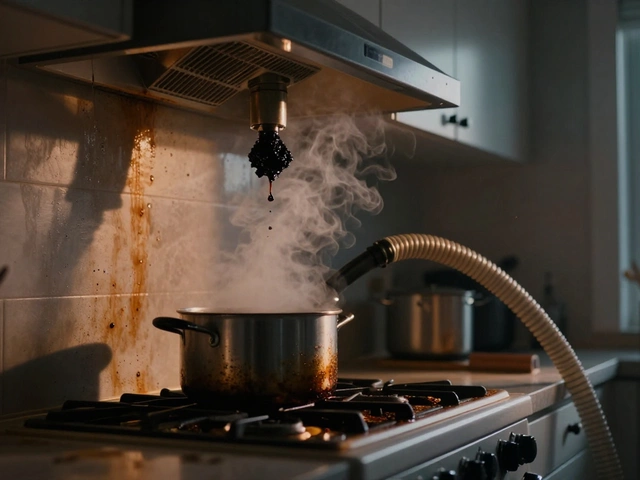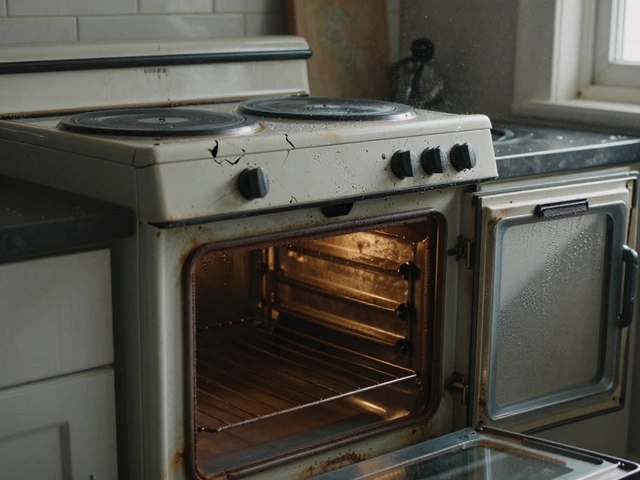In our fast-paced tech world, laptops are often seen as objects with a short shelf life, yet there's a certain charm in holding onto a decade-old device. As technology races ahead, various factors like performance, cost, and emotional attachment play crucial roles when deciding whether to continue using a machine that has served you for so long.
Old laptops, while seemingly obsolete, can still serve a purpose with some thoughtful consideration and a bit of maintenance. It’s important to weigh the advantages and drawbacks before making a decision. Maybe your old laptop has a story, or perhaps it simply fulfills what you ask of it. Regardless, let's take a deep dive into understanding if keeping your aging laptop is the right move for you.
- Assessing the Condition and Performance
- Cost vs. Sentimental Value
- Upgrades and Maintenance Tips
- Environmental and Practical Considerations
Assessing the Condition and Performance
When you sit down to scrutinize your 10-year-old laptop, it’s almost like catching up with an old friend. Time might have worn its physical appearance and diminished its speed, yet it may still hold surprises beneath that scratched exterior. Start by evaluating the laptop's physical condition. Check for signs of wear and tear, such as cracks in the casing, missing keys, or a wobbly screen hinge. These might seem superficial, but they can be telltale signs of how the laptop was treated over the years. A gentle touch, much like flipping through the pages of an old book, will reveal if your device still has a few good years left in it.
Now, move on to the performance, which is arguably the heart of the matter. A great way to start is by checking the boot time. If you find yourself brewing a coffee while waiting for it to start, it might be time for some tech TLC. Open up a few applications simultaneously and observe how the laptop handles them. Does it struggle with basic tasks like browsing the internet or playing a video? Speed is often the biggest challenge with older laptops. Consider running diagnostics using built-in software or third-party applications that can give you a deeper understanding of what's happening under the hood. Sometimes, sluggish performance could be due to a cluttered hard drive, and a simple clean-up might work wonders.
In this digital age, it’s easy to get swept away with shiny new tech, but remember: a laptop repair could breathe new life into your old friend. The processor, RAM, and storage are the vital organs of your laptop, dictating its speed and capability. Verify if the processor is still within a reasonable range to handle your current needs. An old laptop might only have limited RAM, making multitasking a challenge. Upgrading RAM is one of the simplest and most cost-effective ways to boost performance. Look up online forums or communities where tech enthusiasts share knowledge and tips on older laptop models. A quote from TechGuru Magazine states, "An upgrade extending a device's life by even a few years can significantly reduce your tech footprint and save on expenses."
Another aspect to consider is battery longevity. After a decade, a laptop’s battery is likely to have lost more than half its original capacity. Check battery health using system diagnostics and weigh the option of replacing it. Does the laptop need to be constantly tethered to a power source, robbing you of the very mobility that defines a laptop? Batteries are replaceable but assess whether new savings justify the investment. Observing whether the cooling fans are running excessively can indicate issues with overheating, which can further cement your decision regarding repairs or upgrades.
Here’s a quick checklist to help you thoroughly assess your laptop’s condition and performance:
- Inspect for any physical damage, including the casing, keyboard, and screen hinges.
- Evaluate boot time and the ability to run multiple applications smoothly.
- Utilize diagnostic tools to assess processor efficiency and memory capacity.
- Check battery health and consider its portability and charge retention.
- Listen for loud or frequent fan use, which may indicate overheating issues.
By conducting an in-depth analysis of both aesthetics and functionality, you'll gather the understanding necessary to decide if holding onto your old laptop is worth it or if you need to move on to something new. Each aspect you examine brings you closer to an informed decision that best suits your needs and values.

Cost vs. Sentimental Value
When pondering whether to keep or toss a 10-year-old laptop, balancing cost and sentimental value emerges as a central theme. The practical side grapples with the financial tally of repairing an aging device against the investment in a new machine. Numerous components like batteries, hard drives, and screens are likely to have worn down significantly. Replacement parts might be scarce and often expensive for older models. The budget-conscious might notice that expenses add up quickly, sometimes approaching or even exceeding the price of a sleek, modern alternative.
Yet, dismissing a decade-old companion isn't always an easy choice. Sentimental value holds a weight of its own, sometimes tipping the scales in favor of keeping the device. This laptop might be more than just circuits and software; it might be a vessel of stories – the term paper written late at night, the photos of your first solo venture abroad, or the project that led to your first big break at work. Such memories can make the thought of parting with it more distressing.
One might ask, how to quantify this sentimental value? It’s subtle and deeply personal, often transcending logic. A laptop may hold the emotional echoes of one's college life or the touchstone of someone's early digital explorations. It’s akin to deciding whether to renovate an old house with a creaky charm or move to a modern but soulless apartment. It’s not just about utility but connecting with phases of life that the laptop represents. You'll also notice
"Sentimental value isn’t just in things, it’s in the stories they tell,"reads a line from a classic tech journal, reminding us why sometimes repairing instead of replacing carries profound personal significance.
The environmental cost is another significant factor to consider. Certain studies suggest that extending the life of your electronics could substantially reduce e-waste, contributing positively to the environment. Making such green choices appeals to eco-conscious individuals who prefer squeezing more life out of old devices rather than contributing to the growing pile of discarded electronics. In such a case, cost and sentiment merge towards a common goal – sustainability.
If you're swaying towards refurbishment, prioritize the essentials. Investigate replacing the battery, upgrading memory, or switching to a solid-state drive (SSD) for improved speed. The investment here, while costing a fraction of a new laptop purchase, can breathe new life into the old warrior. Now, more than ever, DIY maintenance kits and online tutorials make it feasible to handle minor repairs yourself, bridging the gap between sentimental memories and monetary costs effectively.
To bridge this divide, it's wise to list the pros and cons. Do an assessment with clear focus areas. The sentimental value against financial imprudence can guide decisions uniquely personal to each owner. Is it the stories and the irreplaceable content inside the machine, or is it the practicality of a faster, more efficient device that matters more to you?
Ultimately, this decision boils down to personal preference, intertwined with practical considerations. It’s about choice and value, both emotional and financial, making the process a reflection of your priorities, values, and the experiences entwined with that classic piece of technology.
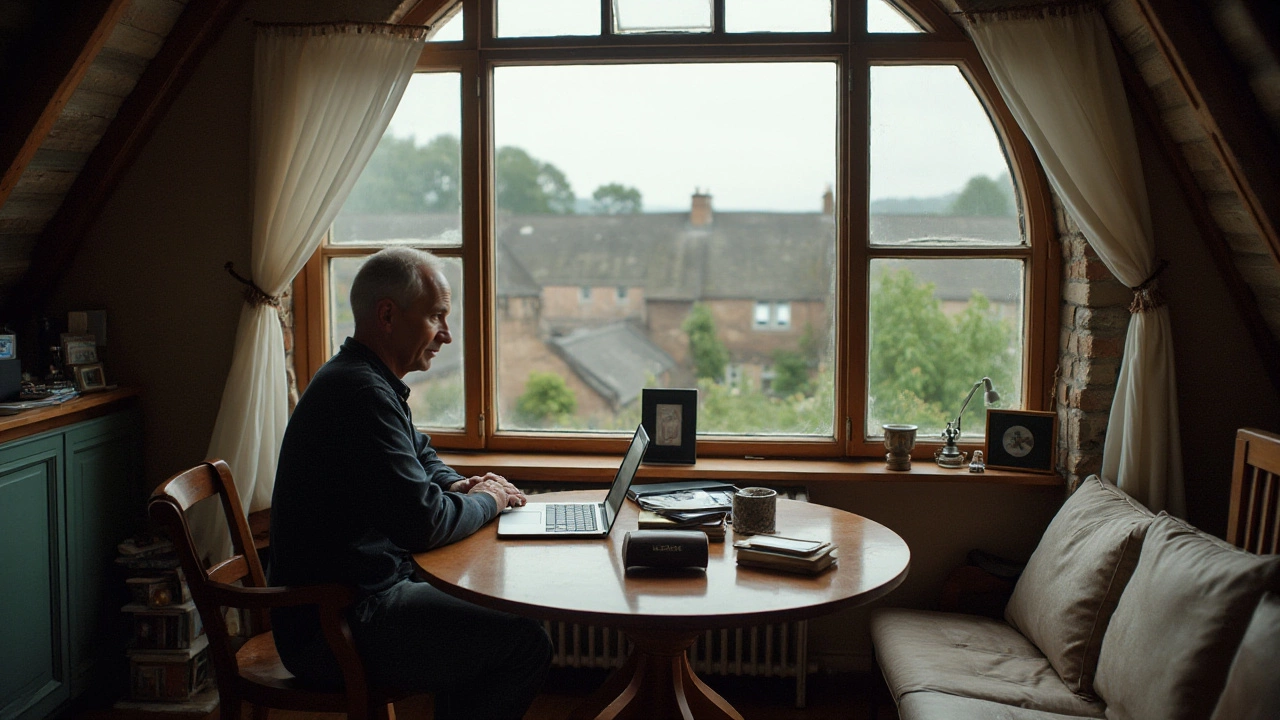
Upgrades and Maintenance Tips
Thinking about breathing new life into your 10-year-old laptop? It's a journey marked with a mix of DIY spirit and familiarity with aging technology, but it's doable and often quite rewarding. First, it's worth noting that not all upgrades will suit every laptop model. The most viable upgrades typically include memory, storage, and sometimes, battery replacements. Adding more RAM is arguably the most impactful enhancement when it comes to boosting performance. Modern software demands more computing power—something older laptops weren't designed for. By increasing the amount of RAM, you effectively give your laptop a better platform to manage more applications simultaneously, which can transform a sluggish machine into something a little peppier.
Besides memory, upgrading the storage drive from an HDD to an SSD can significantly improve your laptop's speed. An SSD provides faster boot times, quicker data access, and much better reliability—a perfect blend for enhancing your laptop experience. Not only do they consume less power, but SSDs are also more resistant to physical shock, a blessing for portable devices like laptops. Now, swapping out hard drives isn't necessarily complicated but requires a bit of patience and attention to detail. It might be useful to consult YouTube tutorials or community forums specific to your laptop model for precise guidance.
Next, let's talk about software. While you can't always update to the latest operating system due to hardware constraints, keeping your existing system up-to-date is vital. Software developers often patch known security vulnerabilities, add handy features, and improve system efficiency through updates. These can be the difference between a laptop that's barely functional and one that's working relatively smoothly given its age. Plus, don't overlook maintaining your old laptop by regularly cleaning it, physically and digitally. Dust accumulation inside the chassis can lead to overheating, which is a common cause of slowness and shutdowns. Taking the time to clean out these vents can do wonders for performance.
From a software maintenance perspective, exercise restraint when it comes to which applications you allow on your device. Too many background processes can weigh heavily on old systems, so managing what's essential can free up precious resources. There’s wisdom in the words of Linus Torvalds, the creator of Linux, who once mused about simplicity: "Complexity is the enemy of efficiency". In this spirit, simplifying your system to its essentials can markedly improve how well your laptop handles tasks.
Let's not forget the social aspect of seeking help. Tech forums like Reddit, Stack Exchange, or dedicated laptop repair sites brim with enthusiasts eager to share knowledge and tips. Oftentimes, these communities have encountered the same quirks your laptop exhibits. Such interactions can sometimes lead to discovering hidden settings or tricks that are pure gold in the long-term upkeep of a laptop. And it's surprisingly satisfying to learn you’re not the only one nurturing a vintage piece of tech.
| Upgrade | Average Cost | Potential Performance Boost |
|---|---|---|
| RAM Increase | $30-$100 | Up to 40% |
| SSD Installation | $50-$150 | Up to 60% |
| Battery Replacement | $20-$80 | Prolongs Usage by 50% |
Suppose you're adept at wise investments and choices; the maintenance and upgrade of a 10-year-old laptop can indeed reflect a perfect balance between nostalgia and practicality. Whether driven by budget considerations, a love for bygone tech eras, or sheer attachment, your old companion has the potential to offer years of modest yet reliable service. Keep in mind, though, that eventually technology will move beyond any upgrade's ability to keep pace. Until that day, however, your trusty laptop doesn’t need to gather dust just yet.

Environmental and Practical Considerations
In an era where sustainability is becoming increasingly vital, the decision to keep a 10-year-old laptop carries significant environmental weight. The production and disposal of electronics contribute substantially to global e-waste, as everyday sleek gadgets quickly become obsolete. By opting to repair instead of replace, you play a quiet but crucial role in reducing this escalating problem. The impact of e-waste isn't just about landfill; the extraction of raw materials like precious metals for new devices has hefty ecological implications. Many enthusiasts advocate for extending the lifespan of tech to mitigate these impacts. Keeping your old laptop isn't just a personal choice; it's a stance against excessive consumerism that defines much of today's electronics industry. In 2022 alone, the world generated over 50 million metric tons of e-waste, a staggering fact that raises eyebrows about our consumption habits.
Budget often becomes a major consideration when deciding whether to keep or dispose of older technology. If your old laptop still functions well, even performing specific tasks like word processing or media playback, investing in minor upgrades can be more cost-effective than buying new. One practical tip is to consider upgrading the RAM or hard drive to SSD, which could dramatically boost its performance. Basic maintenance such as cleaning out dust from the fans can also do wonders. These affordable interventions might save you significant bucks in the long run while keeping more e-waste at bay. Moreover, there's a quaint satisfaction in breathing new life into what seemed beyond repair, transforming it into a reliably useful piece of technology again.
If practicality tips towards letting go of your ancient tech relic, recycling becomes a responsible choice. Unfortunately, only about 20% of e-waste is recycled globally, reflecting a dire need for enhanced awareness and facilities. Many communities have e-waste recycling programs that ensure components are disposed of safely, preventing toxic materials from leaching into the environment. Some manufacturers offer trade-in or recycling programs that might even give you a credit toward a future purchase, combining practicality with ecological good sense. A
quote from Forrest Whitaker in an interview for Green Tech Post states, "Retaining and repurposing technology isn't just about nostalgia; it's an act of conservation. Making small thoughtful repairs can lead to big ecological benefits."Indeed, being mindful about how to handle outdated technology can make a world of difference.

